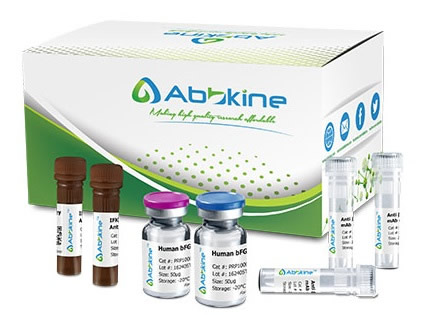Proliferating Cell Nuclear Antigen a protein that acts as a processivity factor for DNA polymerase delta in eukaryotic cells. It achieves this processivity by encircling the DNA, thus creating a topological link to the genome. It is an example of a DNA clamp. The protein encoded by this gene is found in the nucleus and is a cofactor of DNA polymerase delta. The encoded protein acts as a homotrimer and helps increase the processivity of leading strand synthesis during DNA replication. In response to DNA damage, this protein is ubiquitinated and is involved in the RAD6-dependent DNA repair pathway. Two transcript variants encoding the same protein have been found for this gene. Pseudogenes of this gene have been described on chromosome 4 and on the X chromosome.
Canine Proliferating cell nuclear antigen (PCNA) ELISA Kit employs a two-site sandwich ELISA to quantitate PCNA in samples. An antibody specific for PCNA has been pre-coated onto a microplate. Standards and samples are pipetted into the wells and anyPCNA present is bound by the immobilized antibody. After removing any unbound substances, a biotin-conjugated antibody specific for PCNA is added to the wells. After washing, Streptavidin conjugated Horseradish Peroxidase (HRP) is added to the wells. Following a wash to remove any unbound avidin-enzyme reagent, a substrate solution is added to the wells and color develops in proportion to the amount of PCNA bound in the initial step. The color development is stopped and the intensity of the color is measured.
Canine Proliferating cell nuclear antigen (PCNA) ELISA Kit listed herein is for research use only and is not intended for use in human or clinical diagnosis. Suggested applications of our products are not recommendations to use our products in violation of any patent or as a license. We cannot be responsible for patent infringements or other violations that may occur with the use of this product.
bio-equip.cn




